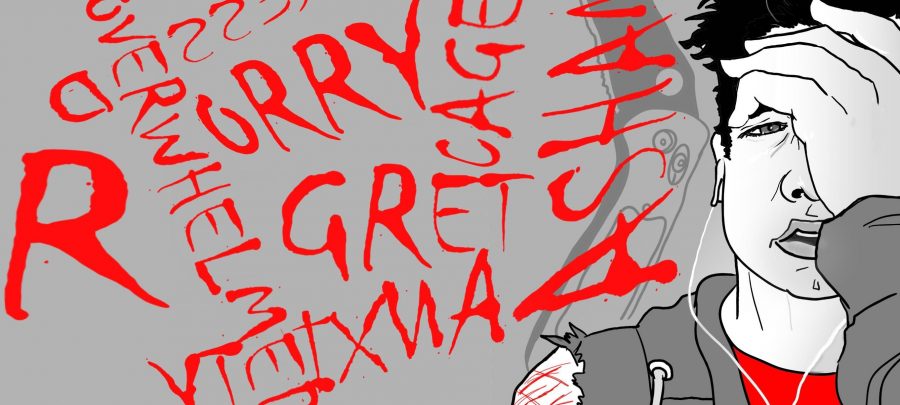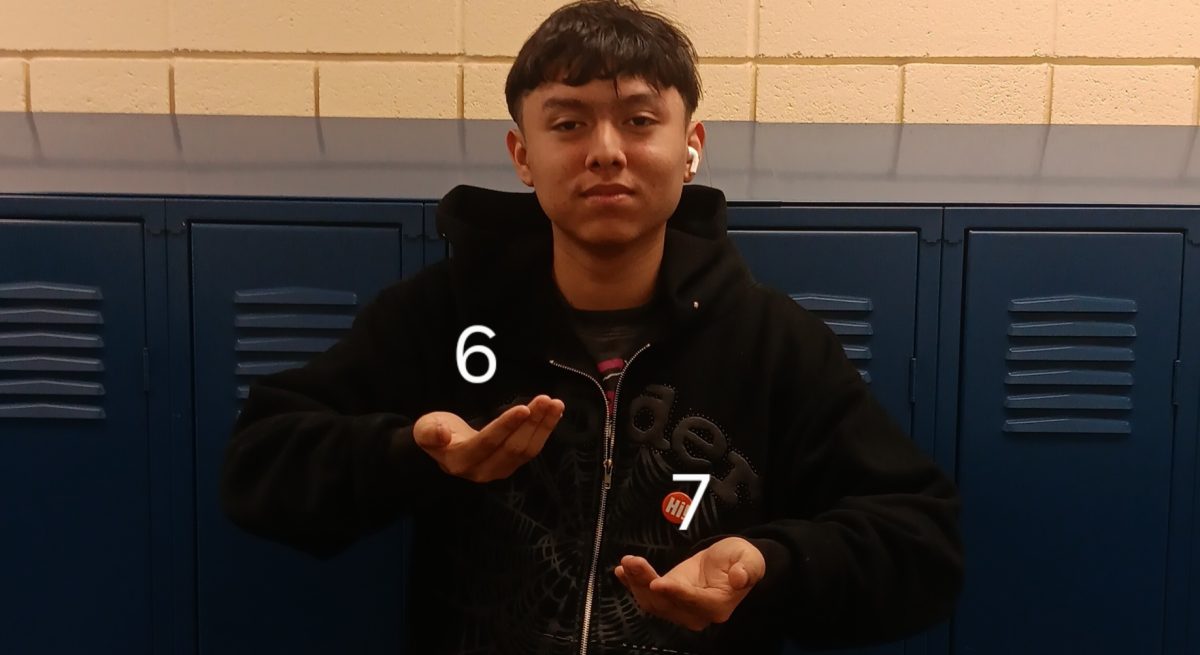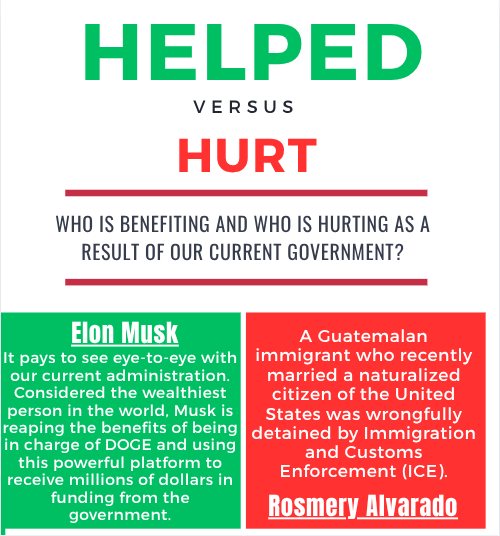The razor’s edge glinted under the bathroom lights.
I stood there gazing into the mirror; wrestling with the monsters of my own mind.
I lost.
The blade bit into my shoulder. It was dull. I winced as the razor stopped in its tracks. The blade had snagged. I yanked it out. Little red beads started to well up; my vision blurred.
I deserve this.
Cut.
This is for all of my failures.
Cut.
This is my own fault.
Cut.
I deserve this.
Cut.
I deserve this.
My white knuckled grip on the razor loosened; it clattered to the floor and drops of blood stained the tile.
Every night for a week, I repeated the ritual.
I couldn’t sleep
My right shoulder throbbed, and my left side ached; I just lay on my back searching for answers on the ceiling.
The week after I started cutting again, I found my old knife; it was a gift, but I never used it because I was afraid of knives.
It was sharp, nothing like that dull old razor blade.
It was a different kind of pain. All I needed to do was clench my jaw and I could push much deeper and farther. It stung more intensely than I had ever felt before; the steel burned. I was shocked.
The next day my arm was so sore I could not hold a pencil very well. I was enchanted; the little red beads formed faster and in greater volume. I could not stop. I was obsessed with the idea that I deserved the pain. At the time it felt like I had to cut; I did not. I believed that it would help. It did not.
Self harm might seem completely ridiculous, but for some it is a release, a comfort. Like so many other mental health issues, it becomes part of a cycle. Shame accompanies the injury, contributing to feelings of worthlessness, which likely was part of the reason to injure in the beginning.
Self harm usually begins in the teenage years. For those who cut it feels like the only way to process those feelings. It is not.
The Trevor Project, an online resource for suicidal and depressed teens, lists the following as reasons to self harm:
- Relieve tension and overwhelming emotions.
- Return them to reality and make them feel alive again, sometimes after seeing blood.
- Establish control after feeling like they have little to no control over their environment.
- Seek security and a reliable outcome. For example, cutting will always produce blood.
- Feel special and unique. Some say that disapproval adds to a sense of satisfaction.
- Influence or punish others, or prove how strong their emotions are.
- Punish themselves due to negative self-perceptions.
- Evoke a good mood. One theory is that the pain involved in self-injury may release endorphins (natural painkillers) that reduce emotional pain. A cycle is formed in which habitual self-injurers hurt themselves in order to feel better.
For me cutting is not a cry for attention. If it were, I would not hide the scars. Sometimes I just hate myself, and I feel like I hurt others too much; I just needed that pain so that I would stay away from people.
Sometimes the blood is shocking. It brings me back into the moment, into reality. I get lost fighting to find my way out of my own mind. I cage myself and the key is just out of reach. When I feel like I’m slipping away, those angry red lines make me real.
Every person alive has coping mechanisms. Is self harm really any different than any other addiction? No.
Regardless of what some people think, even myself, self harm does not diminish your worth.
When I finally informed my therapist, she was not shocked. She did not get angry. She did not treat me like a child. She did, however, quickly make me aware that there were other ways to deal with my emotions.
Most self harm help sites and resources inform parents not to get angry about the injuring; it is far more important to work on why the child is cutting, burning, bruising.
I hurt myself, ruin relationships, avoid work because I am terrified of changing. I know it is not a healthy coping mechanism; I would probably benefit from stepping out of my comfort zone, but I just freeze. I stopped trying so hard in school because I’m terrified of being recognized. I want to be a background character. I have convinced myself that I can not take risks.
Generally I am a coward. I avoid things I should confront. I break things I should fix. I withdraw when I should reach out. I get cold when all I want is warmth.
I can’t speak, so I write.
Aloof, detached, standoffish, icy, unapproachable, cold-hearted. All words I’ve heard more than once.
I have gotten uncomfortably close to suicide. I have never gone through with it, for various reasons. I owe a few people my life, but before I met those people I was just afraid of the pain or that it would not work. I always found little reasons to stay alive. For a time, I was just living to take care of my puppy. I do not want to be a coward; I want to struggle. I want to keep living.
I am still not well. I am making mistakes that make me feel like a horrible person, but I have a better grasp on who I feel I should be. I have been working with a therapist for about a year, and I am figuring out the why. I can not always stop my gut reaction, and I am still ashamed of that. I am a lot better at shutting down the anxiety now, but it is still completely overwhelming in certain situations.
I guess others do not always see me as worthless, but it’s difficult to understand when people want to get closer to me. I know me better than anyone, at least I think I do, and I do not like myself; if that’s true why would you? At least that’s how it feels when I am having a hard time; sometimes I like myself just fine, but often I retreat into the madness. I’m more comfortable when things are going wrong because it’s my normal. It’s what I am used to.
I am not strong enough to make it on my own, but I am on my own because I’m not strong enough.
Understanding the why is key in stopping the behavior. I rationalize, as a way to cope, but some things are illogical; feelings for example–sometimes I just get overwhelmed for no reason. I do a lot of research outside of therapy because I want to know everything possible about my afflictions so that I can fix them. On more than one occasion my therapist has been impressed with my comprehension of the issues at hand; the problem is even though I know what is happening I still can not always stop it.
It does not feel like it, but my therapist claims that I have made great strides in the year we have been working together. Just the other day she said she was proud that I called a college to cancel my housing hold. At first that hit me hard. I could not breathe.
She was proud because I canceled a housing hold. I’ve worked this long for that. I realized though, that I could not do that before. I could not talk to strangers. Sure it is a small step, but it is progress.
Progress is slow, but I’m not giving up. Not now. Not ever. I’ll fight every day just to gain an inch. Even if I end up falling again, I will always get back up. You do not get better instantly. It’s a journey.
Early in December I was planning to kill myself; I kept thinking of the future, my future, and I did not see any way that I could get through life. I was blinded again, in a haze. I thought it had gone away, but the storm was just over the horizon. I pushed everyone away and decided that if I was going to do it, I did not want to hurt the people closest to me. I thought it wouldn’t be fair to kill myself if these people cared about me. Then I went on a college visit:
“With the federal loan, you will have excess student aid.”
I sat there with my mouth wide open. My hopeless future, that was just my insecurity; those choices I made to not try, to push others away, they were incorrect. In that moment I started to believe I could hang on. No, not just that. I started to believe I could reach my dream. I have not cut myself since then, and right now I don’t want to.
I don’t want to die.
I want to live.
I want to fix things.
There is always hope.
National Suicide Prevention Lifeline: 1-800-273-8255







